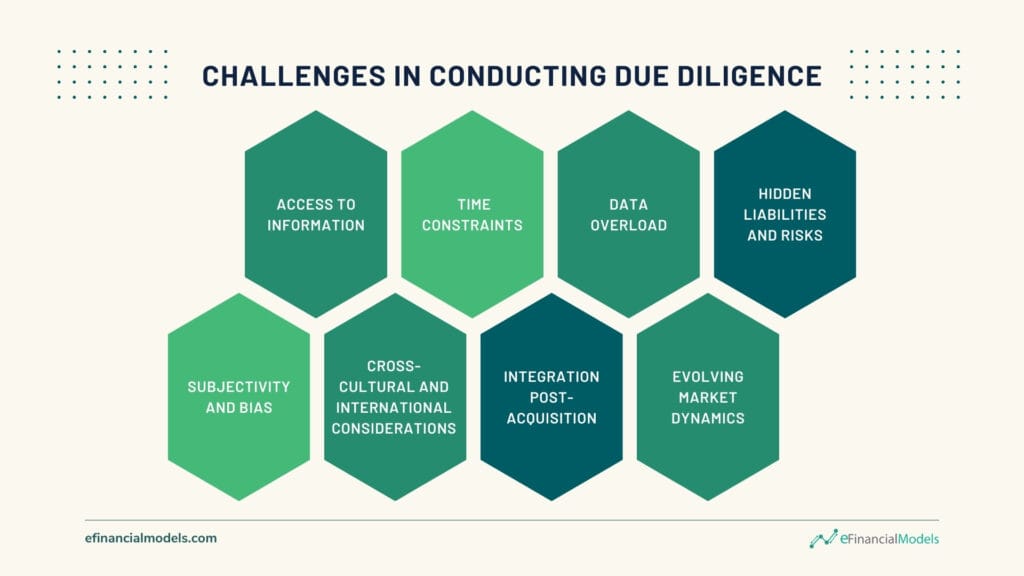As a business owner, you know how crucial secure due diligence process is in making informed decisions about potential investments or mergers and acquisitions. However, the traditional methods of conducting due diligence can be time-consuming and costly. In this article, we’ll explore how data rooms can simplify the process and provide a more efficient way to streamline your due diligence.
How Data Rooms Simplify Due Diligence Processes
Conducting due diligence requires access to a vast amount of information, including financial records, contracts, and other sensitive documents. Traditional methods of sharing this information often involve physical meetings, emails, and phone calls, which can be slow and prone to errors. Data room for due diligence, on the other hand, provide a secure and organized platform for sharing and managing this information and support efficient business processes. With data room technology, you can upload your documents and allow authorized parties to access them online, eliminating the need for physical meetings and reducing the risk of information leaks.
The Role of Virtual Data Rooms in Due Diligence
In today’s digital data space, virtual data rooms have become an indispensable tool in the due diligence process. These secure online platforms provide a centralized location for sharing sensitive information, allowing multiple parties to access and review documents simultaneously. As a result, virtual data rooms have revolutionized the way companies conduct due diligence, making it faster, more efficient, and more secure.
A traditional due diligence process typically involves the manual sharing of documents through email or physical mail, which can be time-consuming and prone to errors. Virtual data rooms eliminate these issues by providing a single, cloud-based platform where all documents can be stored, shared, and accessed electronically. Among virtual data room benefits we can highlight:
1. Faster document sharing: Virtual data rooms enable rapid document sharing, eliminating the need for physical transportation and manual copying. This speeds up the due diligence process, reducing the time spent on data collection and review.
2. Enhanced security: Virtual data rooms offer robust security features, such as encryption, two-factor authentication, and access controls, to protect sensitive information from unauthorized access. This ensures that confidential documents are kept safe from cyber threats and physical theft.
3. Real-time tracking: Virtual data rooms provide real-time tracking and monitoring capabilities, enabling you to monitor user activity, track document access, and receive notifications of any changes or updates. This transparency helps you maintain control over the due diligence process and ensures accountability.
4. Collaboration and coordination: Virtual data rooms facilitate seamless collaboration among team members, stakeholders, and advisors by providing a centralized platform for reviewing and commenting on documents. This streamlines communication and reduces the risk of miscommunication or misunderstandings.
5. Cost savings: Virtual data rooms reduce costs associated with physical document storage, transportation, and reproduction. They also minimize the need for travel and accommodation expenses for in-person meetings.
6. Environmentally friendly: By reducing the need for physical documents and paper-based processes, virtual data rooms promote a more sustainable approach to due diligence, minimizing environmental impact.
So, virtual data rooms have transformed the due diligence process by providing a secure, efficient, and collaborative platform for sharing sensitive information. By leveraging these benefits, companies can streamline their due diligence processes, reduce costs, and enhance their overall deal-making experience.
Key Features of Data Rooms for Efficient Due Diligence
Conducting due diligence is a vital and intricate part of any business transaction, essential for making well-informed decisions. However, this process presents its own set of challenges. Recognizing these obstacles and developing strategies to address them is key to a successful due diligence review.

Utilizing a data room can significantly aid in overcoming these difficulties by providing a secure and organized platform for managing documents and facilitating efficient collaboration, ultimately streamlining the due diligence process.
When selecting a data room for due diligence, there are several key features to consider. Some of the most important include:
- Security: Look for a data room that offers robust security measures, such as encryption and two-factor authentication.
- Organization: A well-organized data room should have a clear structure and easy-to-use interface.
- Collaboration tools: Look for features that enable seamless collaboration between team members and stakeholders.
- Customization: Choose a data room that allows you to customize your workflow and tailor it to your specific needs.
Benefits of Using a Data Room for Due Diligence
By using a data room for due diligence, you can streamline your process and enjoy several benefits, including:
- Increased efficiency: Data rooms automate many manual tasks, freeing up more time for critical analysis.
- Improved security: A secure data room reduces the risk of information leaks and protects your sensitive documents.
- Cost savings: Physical meetings and travel costs are eliminated with a virtual data room.
- Enhanced collaboration: Data rooms facilitate real-time collaboration and communication between team members.
Best Practices for Implementing a Data Room
Learn how data rooms simplify the due diligence process by providing a secure and organized platform for sharing sensitive information. Discover the benefits of using a data room for due diligence and best practices for implementation.
When implementing a data room for due diligence, keep the following best practices in mind:
- Plan ahead: Plan your data room strategy well in advance to ensure a smooth implementation.
- Communicate clearly: Clearly communicate the benefits and expectations of using a data room to all stakeholders.
- Monitor activity: Regularly monitor activity in your data room to ensure compliance with regulations.
Conclusion
In conclusion, data rooms are an essential tool in streamlining due diligence processes. By providing a secure and organized platform for sharing sensitive information, they reduce the risk of errors and improve collaboration between team members. By following best practices and choosing the right data room software, you can ensure a successful due diligence process that meets your business needs.

